Maximize Safety with Mobile Elevated Platform Training Digital Strategies
In today's fast-paced work environment, ensuring the safety of employees working at heights is more critical than ever. Mobile Elevated Platform Training is essential for equipping workers with the knowledge and skills needed to operate various types of elevated work platforms safely. As organizations increasingly rely on digital strategies to enhance training effectiveness, the integration of technology into Mobile Elevated Platform Training programs has become a transformative approach in the industry. This blog will explore the different types of mobile elevated platforms, the importance of comprehensive training, and how digital strategies can maximize safety and efficiency on the job site. By leveraging innovative training methods, businesses can significantly reduce the risks associated with working at heights, ultimately fostering a safer work environment for everyone involved.

Leveraging Digital Tools for Enhanced Mobile Elevated Platform Training
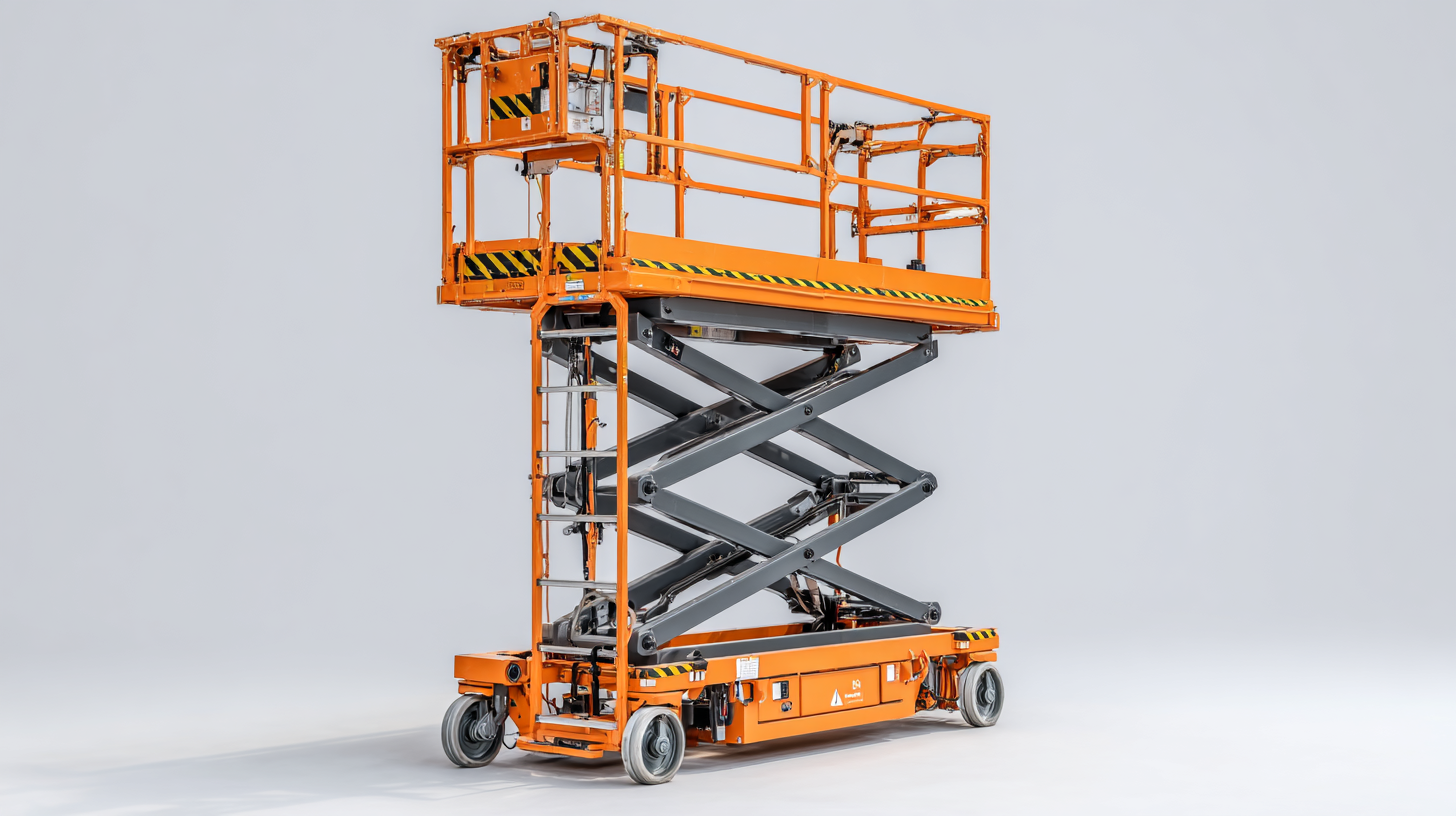 Mobile Elevated Platforms (MEPs) are essential in various industries, enabling workers to reach elevated areas safely. As the need for efficient training programs grows, leveraging digital tools is becoming increasingly vital. By integrating innovative digital strategies into MEP training, organizations can enhance learners' experiences, ensure better retention of information, and significantly improve safety on the job site.
Mobile Elevated Platforms (MEPs) are essential in various industries, enabling workers to reach elevated areas safely. As the need for efficient training programs grows, leveraging digital tools is becoming increasingly vital. By integrating innovative digital strategies into MEP training, organizations can enhance learners' experiences, ensure better retention of information, and significantly improve safety on the job site.
One effective approach is the use of interactive e-learning modules that allow trainees to engage with the material actively. These modules can feature real-life scenarios, quizzes, and gamified elements that not only make learning enjoyable but also encourage better understanding of safety protocols. Tips for success include incorporating video demonstrations of MEP operations and safety checks, which can provide visual context and cater to different learning styles.
Additionally, using mobile applications for on-the-go training reinforces knowledge retention. These apps can offer access to training resources, including manuals, safety guidelines, and instructional videos right from the field. To maximize the impact, it’s important to regularly update the content to reflect the latest safety regulations and best practices, ensuring that every worker is well-prepared to operate MEPs safely and effectively.
Key Safety Protocols for Mobile Elevated Platforms in Digital Learning
In the realm of construction and industrial work, ensuring the safety of operators using Mobile Elevated Platforms (MEPs) is paramount. Digital learning strategies are increasingly being utilized to enhance training protocols for MEPs, emphasizing essential safety protocols. The use of interactive online modules and virtual reality simulations allows trainees to understand the mechanics and risks associated with MEPs in a controlled environment. These platforms facilitate rigorous learning while accommodating varied learning paces, ultimately leading to a more competent workforce.
Key safety protocols integrated into digital learning include hazard recognition, proper platform handling, and emergency procedures. Trainees engage with immersive content that reinforces the importance of personal protective equipment, stability checks, and load limits before operation. Through quizzes and scenario-based assessments, learners can effectively demonstrate their understanding of these protocols. As digital strategies continue to evolve, they not only foster a safer working environment but also encourage ongoing education and compliance, ensuring that all MEP operators are well-equipped to perform their duties safely.
Maximize Safety with Mobile Elevated Platform Training Digital Strategies
Integrating Virtual Reality in Mobile Elevated Platform Training Programs
As industries increasingly recognize the importance of safety in operating Mobile Elevated Platforms (MEPs), the integration of Virtual Reality (VR) into training programs is transforming how operators prepare for real-world challenges. According to a report from the National Safety Council, nearly 54% of workplace injuries involve falls, many occurring from elevated work platforms. By incorporating VR, training programs can simulate realistic environments and scenarios that enhance operator skills without the inherent risks of actual platform operation.
Virtual Reality provides an immersive experience that engages learners more effectively than traditional training methods. A study by PwC indicates that employees trained with VR are 4 times as more focused during training sessions compared to classroom learning. This level of engagement translates into improved retention of safety protocols and operational procedures, crucial for preventing accidents on the job. Furthermore, VR training can be scaled to accommodate various skill levels and can be deployed consistently across multiple locations, ensuring that every operator receives the same high standard of education.
By leveraging these digital strategies, companies not only boost their safety records but also create a culture of proactive risk management. As the market for VR in training is projected to reach $12.6 billion by 2025, embracing this technology could redefine safety training for Mobile Elevated Platforms, bringing about a new era of efficiency and effectiveness in the field.
Assessing Competency: Digital Assessments for Elevated Platform Operators
In the construction and maintenance industries, the safe operation of Mobile Elevated Platforms (MEPs) is critical. To ensure that operators are not only trained but also competent, digital assessments have emerged as a transformative solution. These assessments can effectively measure an operator's understanding of safety protocols, equipment handling, and emergency procedures through a series of interactive modules and simulations. By leveraging digital technology, organizations can create a more engaging and comprehensive evaluation process that goes beyond traditional testing methods.
Digital assessments also facilitate efficient tracking of operator progress and skill retention over time. Utilizing data analytics, employers can identify knowledge gaps and tailor training programs accordingly. Moreover, these assessments can be easily updated to reflect the latest industry standards and safety regulations, ensuring that operators are always prepared for the rapidly evolving work environment. This proactive approach not only enhances individual competency but also bolsters overall workplace safety, making it an essential component of a robust MEP training strategy.
Maximize Safety with Mobile Elevated Platform Training Digital Strategies - Assessing Competency: Digital Assessments for Elevated Platform Operators
| Operator Name | Training Date | Assessment Score (%) | Competency Status | Certification Expiry Date |
|---|---|---|---|---|
| John Doe | 2023-05-14 | 95 | Competent | 2025-05-14 |
| Jane Smith | 2023-06-01 | 88 | Competent | 2025-06-01 |
| Michael Brown | 2023-07-10 | 76 | Not Competent | N/A |
| Emily Johnson | 2023-08-20 | 91 | Competent | 2025-08-20 |
| David Wilson | 2023-09-05 | 82 | Competent | 2025-09-05 |
Best Practices for Continuous Learning in Elevated Platform Safety Training
In the realm of elevated platform safety, continuous learning plays a pivotal role in minimizing workplace accidents. According to the National Institute for Occupational Safety and Health (NIOSH), approximately 11% of all workplace fatalities are attributed to falls, making proper training for operators of mobile elevated platforms (MEPs) crucial. Incorporating digital strategies into training can enhance learning outcomes and retention. For instance, interactive e-learning modules and virtual reality simulations provide immersive experiences that can significantly improve comprehension of safe operation practices.
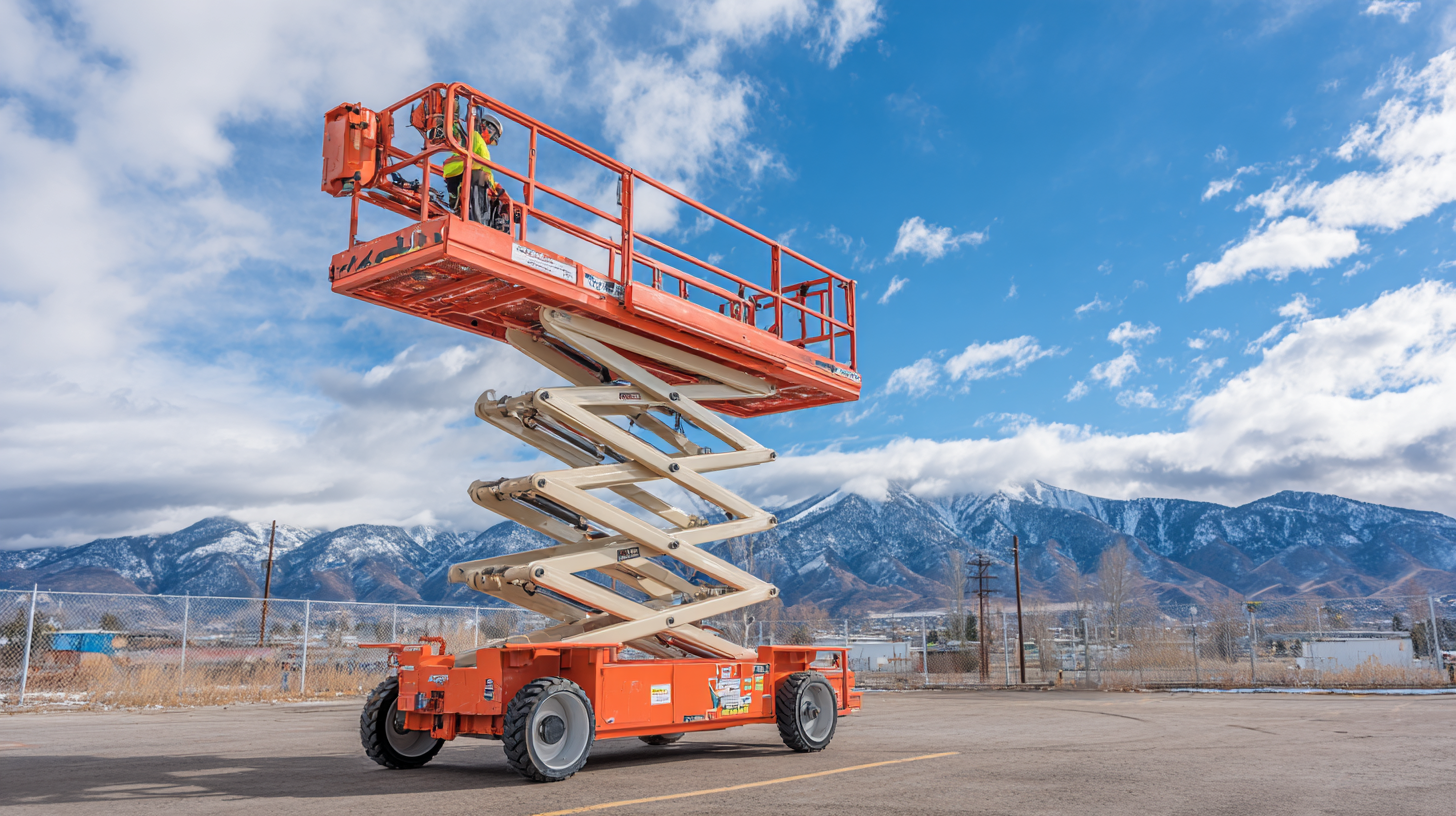
Additionally, the use of mobile applications for on-the-go training and assessments can foster ongoing knowledge retention among workers. A report by the American Society of Safety Professionals (ASSP) highlighted that organizations adopting digital training strategies saw a 40% improvement in training engagement and a 30% reduction in compliance incidents. By implementing best practices such as regular refresher courses and integrating real-time feedback mechanisms, companies can ensure that their workforce remains adept at navigating the risks associated with operating mobile elevated platforms.
This commitment to continuous learning is essential not only for enhancing safety protocols but also for cultivating a culture of safety within the workplace.
Related Posts
-
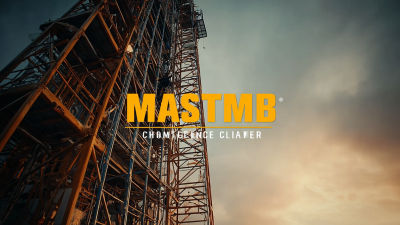
Transforming Construction with Best Mast Climber Scaffold Technology Trends for 2025 and Beyond
-

5 Essential Tips for Choosing the Right Mast Climbing Platform for Your Project
-
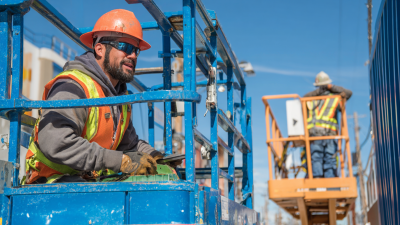
The Comprehensive Handbook for Mastering Mobile Elevated Work Platform Training
-

Enhancing Future Safety: Cost-Effective Maintenance Solutions Beyond ANSI A92 MEWP Standards
-
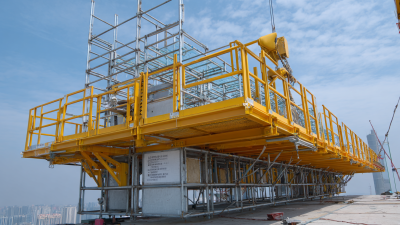
What is the Advantage of Using the Best Mast Climbing Platform for Construction Efficiency
-

Mastering Elevated Work Platform Safety: A Step-by-Step Tutorial for Global Buyers
